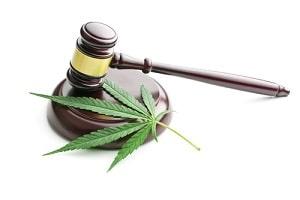Does Marijuana Legalization Increase or Reduce Crime?
 Since the 1990s, many states across the country have legalized marijuana for medical use, but it was not until just a few years ago that recreational marijuana was legalized. In 2012, Colorado and Washington state became the first two states to legalize the recreational sale, possession, and use of recreational marijuana. Since then, there have been nine other states that have legalized recreational marijuana; however, it still remains illegal on the federal level. One of the biggest oppositions to fully legalizing marijuana is the fear that legalization will increase crime. However, just the opposite is one of the reasons people want to legalize it; they think it will reduce crime.
Since the 1990s, many states across the country have legalized marijuana for medical use, but it was not until just a few years ago that recreational marijuana was legalized. In 2012, Colorado and Washington state became the first two states to legalize the recreational sale, possession, and use of recreational marijuana. Since then, there have been nine other states that have legalized recreational marijuana; however, it still remains illegal on the federal level. One of the biggest oppositions to fully legalizing marijuana is the fear that legalization will increase crime. However, just the opposite is one of the reasons people want to legalize it; they think it will reduce crime.
Studies Show Crime Rates Are Either Unaffected or Decreased
According to the Reason Foundation, studies have been conducted in various states that have legalized recreational marijuana to determine what effect, if any, the legalization has had on the crime rate. In Washington state, the number of adults over the age of 21 who were arrested for marijuana possession fell by 98 percent, while the number of those under the age of 21 convicted of possession fell by 50 percent. In Colorado, the number of cases of illegal marijuana cultivation, distribution, and possession fell by 85 percent. Other states such as Alaska and Oregon have seen similar situations.
The Reason Foundation also states that jurisdictions that have legalized marijuana for medical uses have also seen a decrease in the number of opioid overdoses. Other studies have found that property crime has not increased as some people feared it would. In fact, property crime actually fell in neighborhoods in Colorado that opened marijuana dispensaries.
Traffic Crimes and DUI
Another concern that people have when it comes to legalizing marijuana is how it will affect the rate of traffic crimes and DUI in those states. The Reason Foundation reports that in general, the number of drivers who tested positive for THC in states with legalized marijuana has increased, but that it has not been a clear picture of how many of those drivers are actually impaired. Unlike alcohol, there is not yet a way to determine how impaired a person is from THC because THC is not processed the same by everyone’s body. However, three studies have found that traffic fatalities have declined in some states for crashes involving medical marijuana.
Contact a Connecticut Criminal Defense Attorney
In the state of Connecticut, medical marijuana is legal, but recreational marijuana is not. Even though low-level possession charges are handled similarly to traffic tickets, you can still face serious consequences for certain marijuana or other drug-related charges. At the Woolf & Ross Law Firm, LLC, we can help you form a strong defense for any type of drug charge that you may be facing. Call our knowledgeable Hartford, CT drug crimes defense lawyers today at 860-290-8690 to schedule a free consultation.
Sources:
https://reason.org/wp-content/uploads/does-legalizing-marijuana-reduce-crime.pdf
https://www.marketwatch.com/story/heres-what-the-numbers-show-about-the-impact-of-legalizing-marijuana-2019-04-09
https://cannabisoffers.net/blog/marijuana-criminal-statistics/






